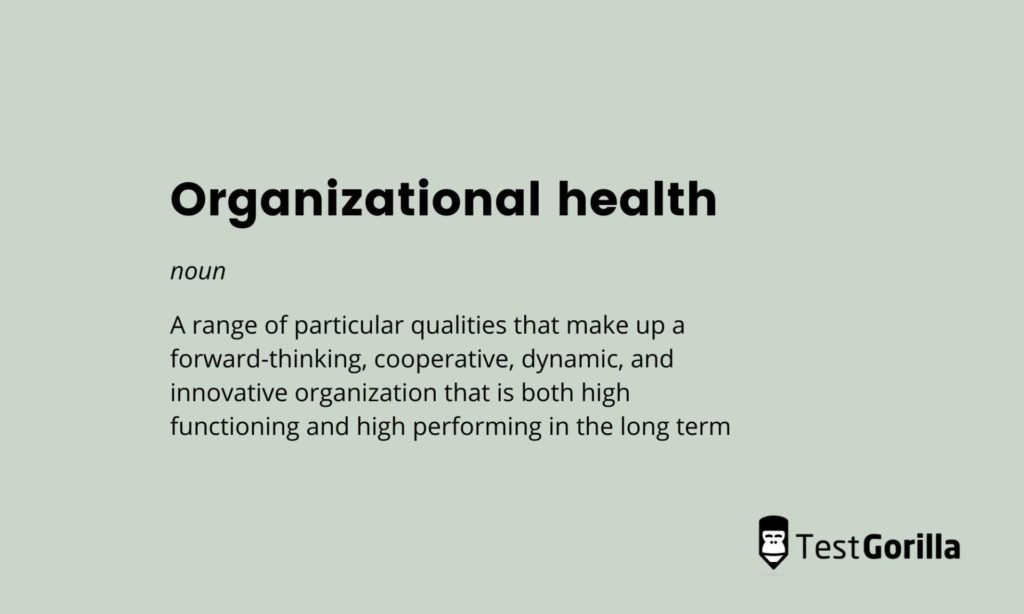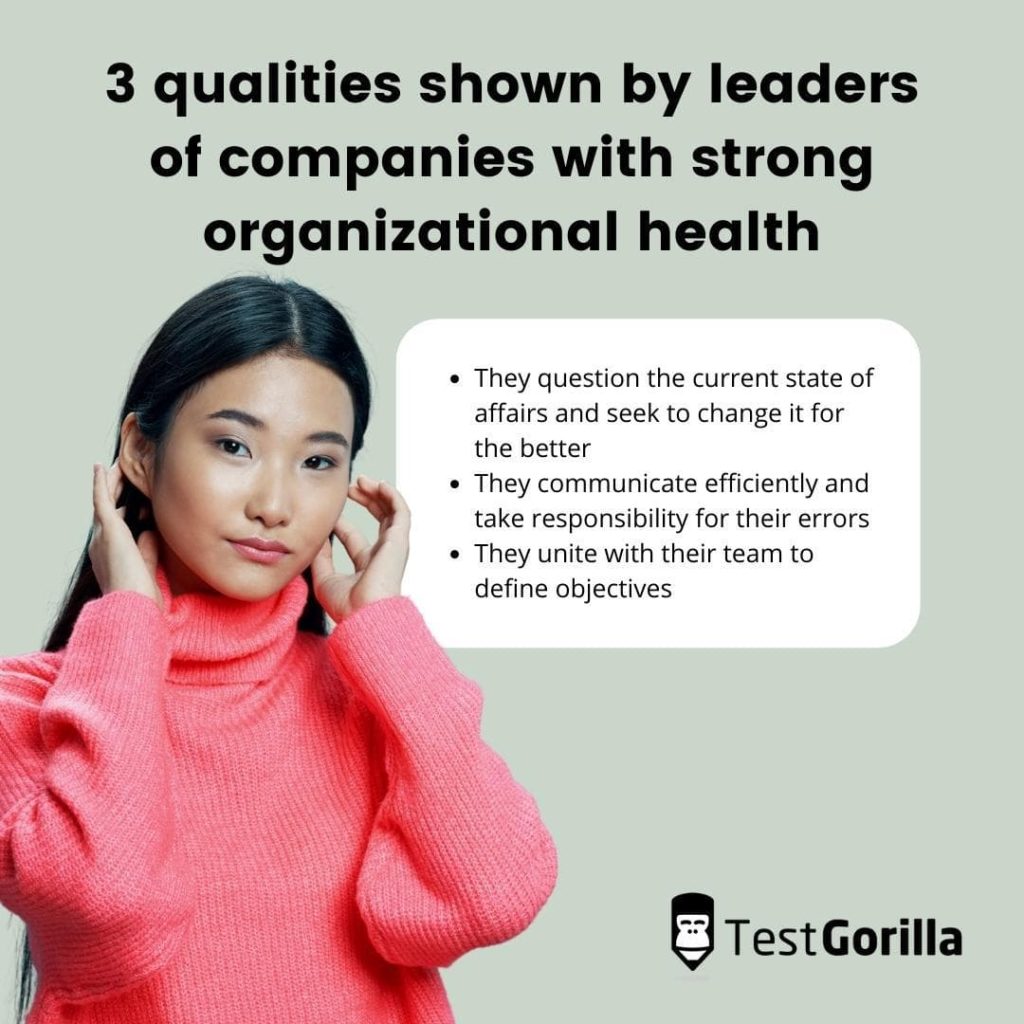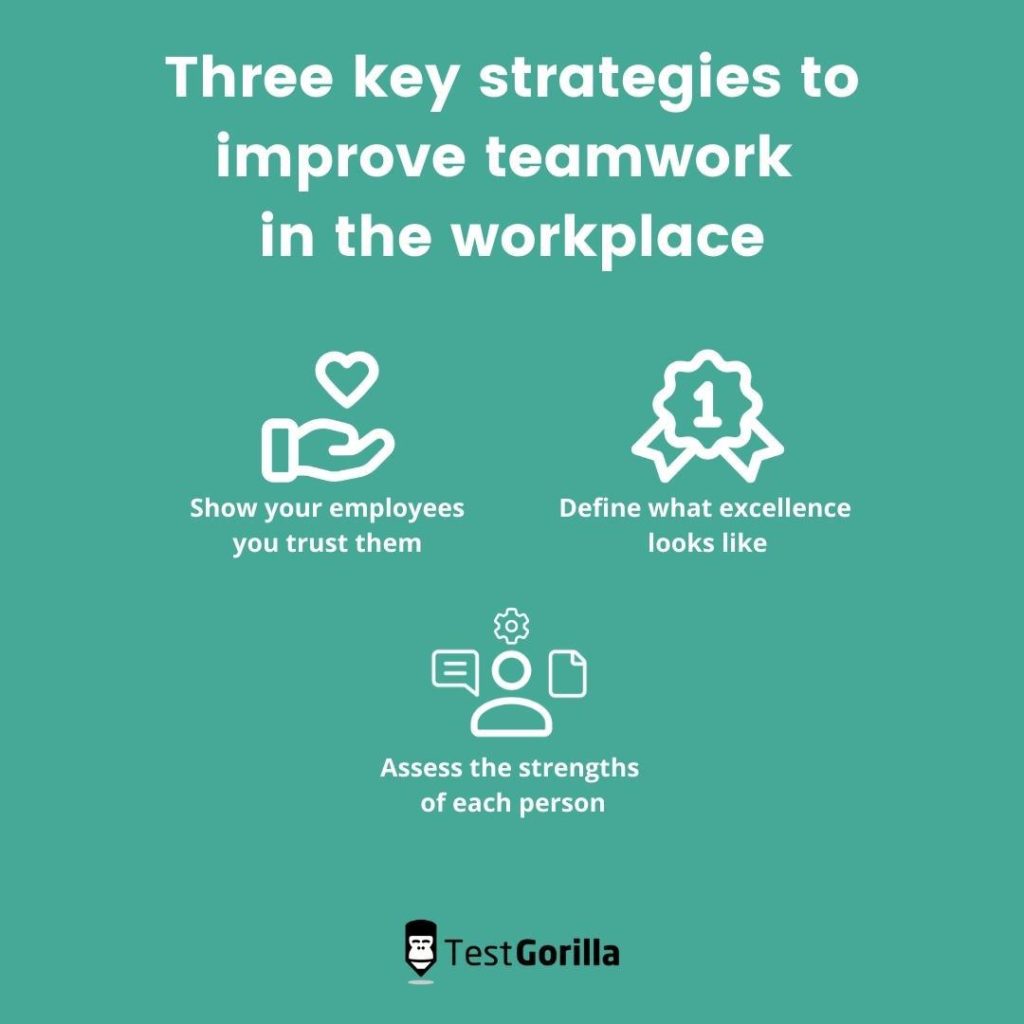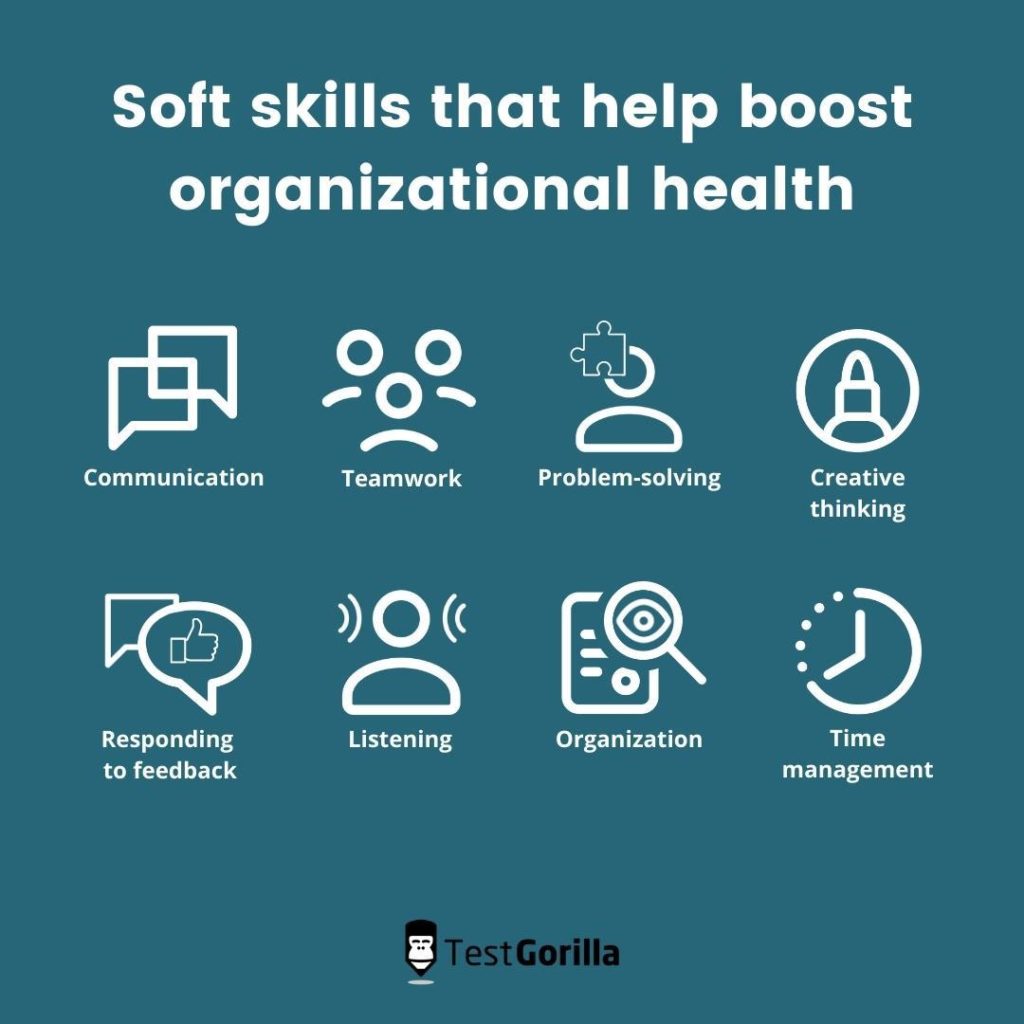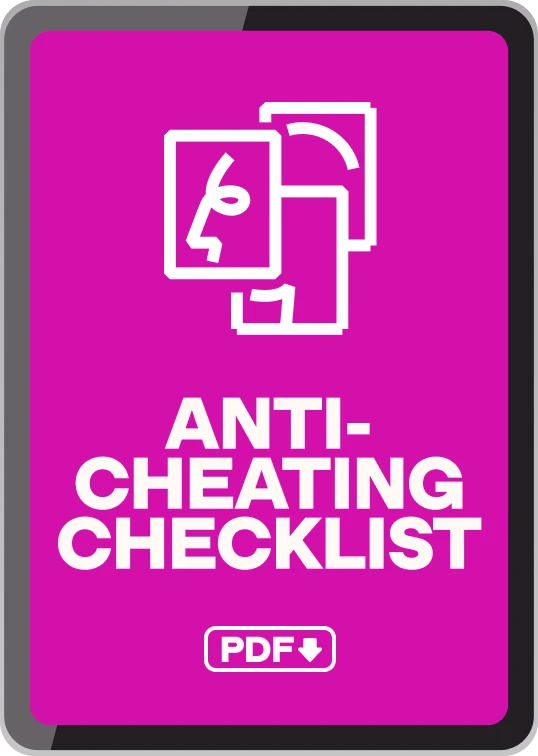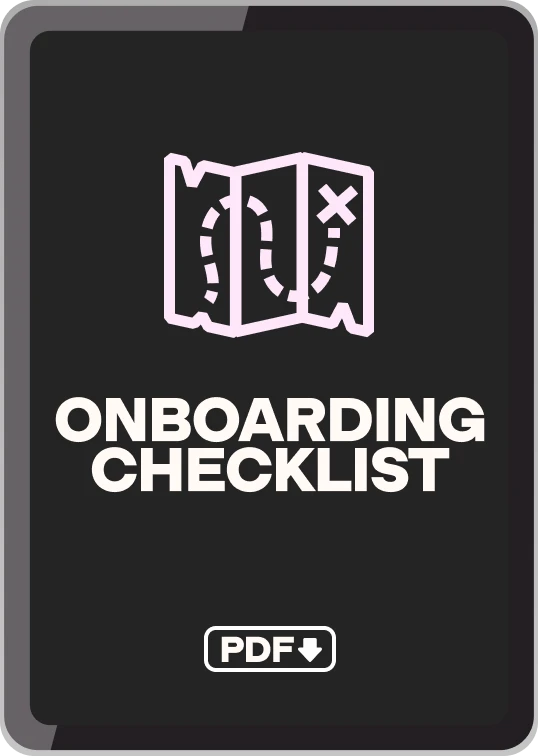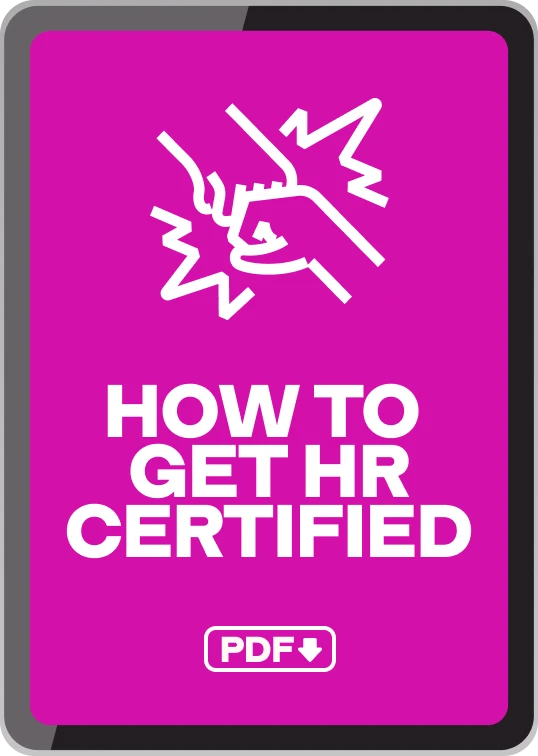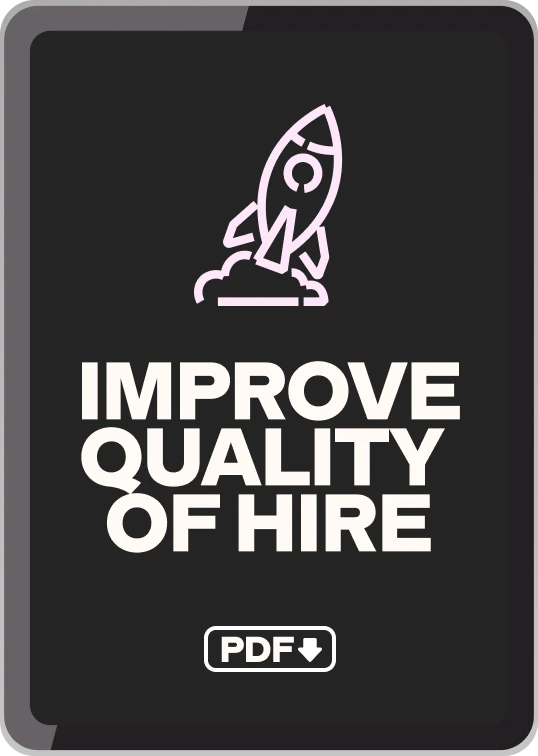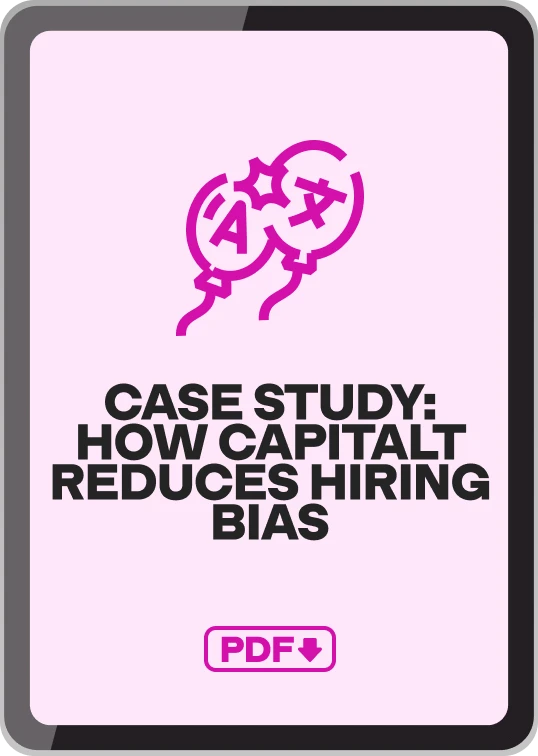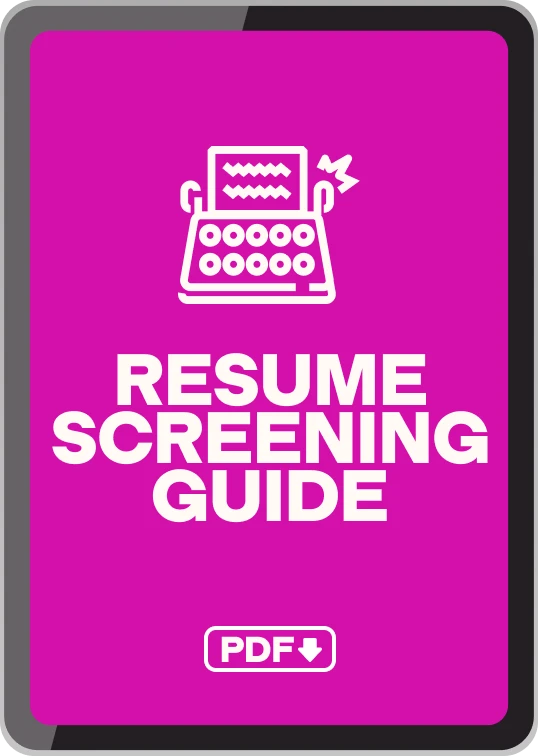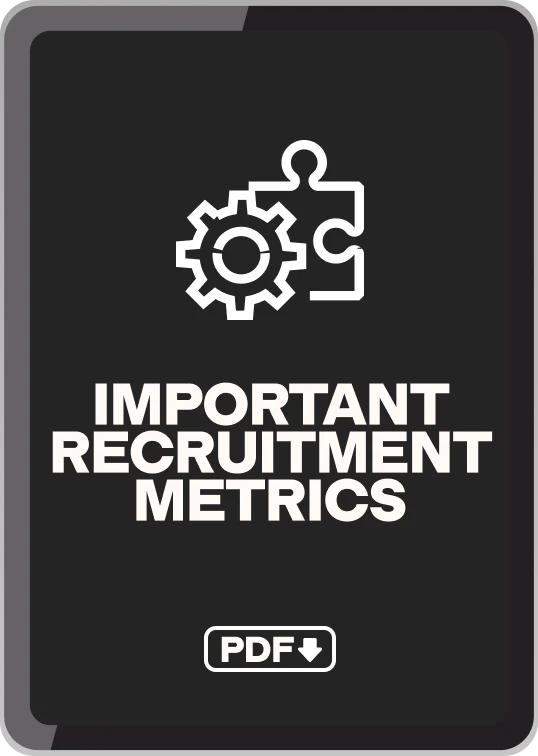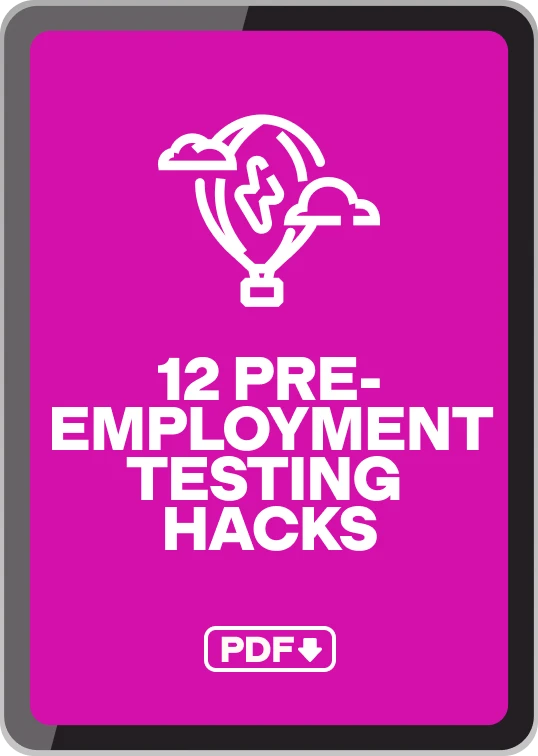What is organizational health, and how can you improve it?
Organizational health is a key factor that can help businesses boost their performance.
According to McKinsey, organizations that strive to improve their health achieve considerable performance gains within 6 to 12 months. Despite that, organizational health gets frequently overlooked, and it’s also difficult to achieve.
With so many businesses enduring misalignment of key processes, low morale, and high turnover rates, organizational health is an aspect that often gets pushed to the side. Seventy percent of the US workforce is disengaged because of these factors.
But here’s an interesting fact: Companies that boast exceptional organizational health can avoid these issues.
Organizational health is important for businesses for various reasons, which we’ll discuss in this article, and there are different strategies you can use to improve the health of your business.
Table of contents
- What is organizational health?
- Why is organizational health important?
- 3 qualities shown by leaders of companies with strong organizational health
- How can a business enhance its organizational health?
- How hiring for both hard and soft skills can take your business’ organizational health to the next level
- Why pre-employment testing is the ideal way to evaluate skills during recruitment
- Organizational health is the key to a successful business
- Skills-based hiring builds organizational health
What is organizational health?
Let’s start with the basics and define what organizational health is.
Organizational health refers to a range of particular qualities that make up a forward-thinking, cooperative, dynamic, and innovative organization that is both high functioning and high performing in the long term.
One quality that you might pick up on if you’re part of a company with great organizational health is that it continuously improves and enhances its processes. However, there’s more to organizational health than constant improvement.
In addition, the term organizational health can be used to describe organizations that:
Have clear company policies
Minimize the negative effect of office politics on teams and individuals
Are open, transparent, and inclusive
To assess the health of your organization, you can ask yourself questions like:
Are your employees keen to share their ideas?
Do they collaborate well with their coworkers?
Are they looking to innovate and inspire others without passing judgment?
Does everyone have access to the information and resources they need to perform at their best?
Do employees feel engaged and motivated?
Does your organization have clear goals, mission, and vision?
These are all pieces of the organizational health puzzle.
A healthy organization can claim that employees at all levels share a “transcendental mission” and a common goal, and are working in alignment to achieve it.
Why is organizational health important?
Organizational health is crucial for a company’s success.
To back this up, a study carried out by McKinsey found that, at more than 800 organizations around the world, the total returns to shareholders generated by the top quartile of healthy organizations were three times higher than those of unhealthy businesses.
But how organizational health helps you meet your goals is important, too. Not only can good organizational health help your company’s financial sustainability, it can also help your employees:
Stay motivated
Collaborate efficiently
Be inclusive and tolerant
Feel integrated and engaged
In sum, the health of your organization has a profound impact on your employees and their work, as well as on their capacity to achieve both individual and common goals.
Consider also that to build a strong competitive advantage, businesses need to be able to adapt, think creatively, and inspire their employees.
For this reason, organizational health is one factor you’ll need to achieve to set yourself apart. It creates an environment in which your business, its employees, and its leaders can stay abreast of significant changes in their field, adapt to challenges, and continue to perform well.
3 qualities shown by leaders of companies with strong organizational health
Are you hiring for a leader who can take the helm of your company and enhance its organizational health?
You should be on the lookout for various qualities that will help steer your organization in the right direction. Here are a few traits you should be looking for.
1. They question the current state of affairs and seek to change it for the better
We’ve mentioned that a company that has good organizational health typically seeks to constantly improve the status quo.
It should come as no surprise that leaders of such organizations should have this trait too. They should aspire to lead, inspire, transform, and get the right balance between stability and growth, while constantly looking to improve processes and achieve better outcomes.
2. They communicate efficiently and take responsibility for their errors
Leaders of healthy companies are exceptional communicators and take ownership and responsibility for their mistakes. Not only should they be willing to talk about their weaknesses, but they should also be able to hold their hands up for the errors they make, and see these as learning opportunities.
Being self-aware, seeking improvement, and asking others for help is crucial in this, and helps support a strong leadership. Business leaders who ask questions, look for ways to communicate with their team, and enhance their own knowledge and skills are ideal for improving a business’ organizational health.
3. They unite with their team to define objectives
To be truly efficient, leadership should be inclusive and open to different points of view. It should actively seek to engage employees in defining short and long-term objectives and in proposing solutions.
While a strongly hierarchical structure might be well-suited for certain businesses (e.g. in highly regulated industries), for others, a flatter structure might better support growth and development.
In both, a relationship of trust between employees and the business’ management is essential and fosters collaboration. Whatever the specific structure, it should be well-suited to the business model and not limit innovation and growth.
How can a business enhance its organizational health?
So, now that you recognize the importance of organizational health, you’ll want to know the best ways to improve it.
Here are three ways you can enhance your business’ health and improve its performance.
1. Encourage teamwork and cooperation
Fostering teamwork and cooperation between individuals and teams will have a direct impact on your organizational health. Problems that organizations face nowadays are so complex that they can often only be solved if you work as a team. But how can you achieve this?
According to Gallup, there are three key strategies you can use to improve teamwork in the workplace:
Show your employees you trust them. When delegating tasks, concentrate on the what, or the outcome you expect, rather than on the how, or the way they need to work. Employees will have different approaches to achieving the expected outcomes; obsessing with rigid processes will only get you so far, and will communicate to your employees that you don’t trust their own judgement.
Define what excellence looks like. Provide clear guidelines on what success looks like for each team and reward quality work. This way, each team member knows what to work towards, and can work with others to overcome challenges.
Assess the strengths of each person. Each team member has different strengths and qualities, and teamwork will benefit from knowing these and working in a way that each person can use their full potential.
2. Hire individuals who have the right communication skills
A huge mistake made by companies all over the world is hiring employees who are not team players. They might have exceptional hard skills, but their people skills might be lacking.
This mistake stands in the way of enhancing your organizational health. Remember, collaboration and a progressive mindset are key to achieving great organizational health, and this starts with communication.
One of the best ways to evaluate candidates’ communication skills is by using a communication test as a part of your pre-employment assessment.
3. Inspire your employees to use individual strengths to their advantage
To foster innovation and improve performance, consider that each of your employees has unique strengths and skills that you should tap into. Managing your employees based on their strengths is one of the best ways to enhance the organizational health of your business.
To achieve this, you need to assess employees’ skills, and one of the best moments to do this is during the recruitment process. You can use personality and skills tests to gain an in-depth understanding of the skillset of each prospective employee, and then use this information to better manage teams in the long run.
Working with each person’s individual strengths has another important benefit: it enables them to develop their natural skills over time, and stay more motivated and engaged. And employee engagement is directly tied to business performance.
How hiring for both hard and soft skills can take your business’ organizational health to the next level
Role-specific skills are only a part of the picture. Hiring individuals who have good people skills is important to enhancing your organizational health, and there are many other soft skills that can also contribute to your success.
Organizations seem to recognize that more and more. According to LinkedIn’s Global Talent Trends report for 2019, 92% of talent acquisition professionals believe that soft skills are equally important as hard skills.
Some soft skills that will help you boost your business’ organizational health include:
Exceptional communication skills
The ability to work within a team
The ability to think creatively
The ability to respond to feedback
Good listening skills
Good organizational and time management skills
In addition to that, employers need to consider candidates’ culture add potential, personality, and motivation for the particular role.
Why pre-employment testing is the ideal way to evaluate skills during recruitment
What is the best way to find out whether your potential employees have the right mix of hard and soft skills you’re looking for?
Pre-employment skill testing, in combination with structured interviews, can give you an in-depth understanding of the skill set and personality traits of each candidate.
With TestGorilla’s Motivation test, you can even check whether your expectations are aligned with those of your candidates.
The advantage of using reliable skills tests platforms like TestGorilla is that you’ll get an objective result that is much more accurate than resume screening alone.
Skills testing also enables you to eliminate unconscious bias during the hiring process and hire a diverse and inclusive workforce, which is essential for organizational health.
With TestGorilla, you can combine up to five tests in a single assessment and assess candidates’:
Language proficiency, and more.
You can also use skills testing when assessing candidates for leadership roles. TestGorilla’s leadership and people management test, for instance, is a great way to discover if your applicants have the right leadership skills to improve your business’ organizational health.
Organizational health is the key to a successful business
Although organizational health might be difficult to define, it’s vital if you want to have a strong competitive advantage and outperform other businesses.
To achieve it, remember to:
Encourage your employees to use and develop their strengths
Offer training to assist them with this
Foster collaboration and communication and encourage collective thinking
Build a strong leadership team that will seek to challenge the status quo
During recruitment, assess role-specific skills, soft skills, personality and culture add, and motivation
Hire a diverse and inclusive workforce
Skills-based hiring builds organizational health
With skills tests, you can adequately evaluate both candidates’ and employees’ skills and strengths.
This will help you make the right hiring decisions and also manage your teams better in order to enhance your company’s organizational health. To start your journey with skills-based recruitment, join TestGorilla for free today.
Related posts
You've scrolled this far
Why not try TestGorilla for free, and see what happens when you put skills first.
Latest posts
The best advice on pre-employment testing, in your inbox.
No spam. Unsubscribe at any time.

Hire the best. No bias. No stress.
Our screening tests identify the best candidates and make your hiring decisions faster, easier, and bias-free.
Free resources
This checklist covers key features you should look for when choosing a skills testing platform
This resource will help you develop an onboarding checklist for new hires.
How to assess your candidates' attention to detail.
Learn how to get human resources certified through HRCI or SHRM.
Learn how you can improve the level of talent at your company.
Learn how CapitalT reduced hiring bias with online skills assessments.
Learn how to make the resume process more efficient and more effective.
Improve your hiring strategy with these 7 critical recruitment metrics.
Learn how Sukhi decreased time spent reviewing resumes by 83%!
Hire more efficiently with these hacks that 99% of recruiters aren't using.
Make a business case for diversity and inclusion initiatives with this data.

